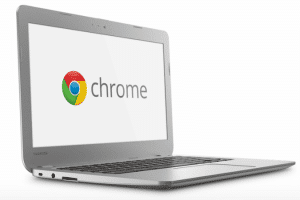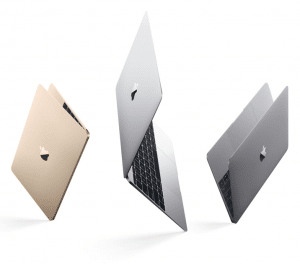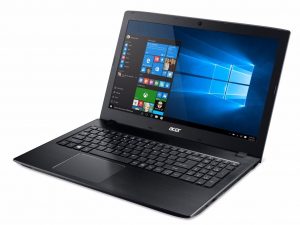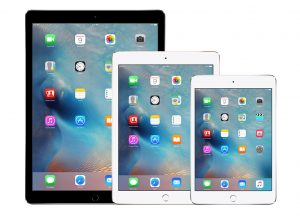What Computer Should I Get for My Kid? The Definitive Guide

So without further delay, let me offer you my professional opinion on the topic, honed over 20+ years of experience with such matters. Maybe it won’t be “The” definitive guide, but it’ll be pretty close!
TL;DR (or “the short version” for you parents)
Ok, if you really want to get down to it, the answer boils down to one simple question: is an Apple Macintosh in your realistic budget? The Macintosh is going to be the most well-rounded and versatile computer for a child of almost any age. The roadblock for most people is the initial cost. The only time to not get a Macintosh is if the budget simply isn’t feasible or if a very particular circumstance dictates otherwise. However, before dismissing a Macintosh outright simply because of cost, I would advise parents to think about their budgets carefully, considering the expected lifespan of a Macintosh compared to the other devices. Also the particular circumstances that would dictate choosing another device have become increasingly few and far between in the last few years. For more details read on.
Additionally, just to be clear understand that you should almost certainly be purchasing a mobile device for your kid. iPads and Chromebooks only come in mobile forms so that’s a given, but a Windows PC or Macintosh PC should realistically be laptops for most children.
 Windows PC
Windows PC
Ah, the old stalwart. The device that symbolized personal computing for most of the lives of people who have kids in the teen or pre-teen age range. It’s the “safe” choice in the minds of many. And it is the the worst choice in almost all scenarios.
While many Windows PCs are inexpensive, the reason they are often so is because they are made with low-quality materials and reduced technical specifications. For a laptop, this can be disastrous in short order as the rigors of the life of a mobile device can take a toll even for adults who are very careful with their computing devices – although I’ve seen many adults who are definitely NOT careful with their technology! Kids and teenagers are notoriously tough on their computing devices, so cracked plastic cases and broken hinges are common ways that an inexpensive and otherwise perfectly functional Windows laptop meets an untimely end. Plus low-end specifications will reduce the useful lifespan of a computer if it does physically last that long. The reality is that a well-made and quality Windows laptop is in the same ballpark price-wise as a Macintosh laptop.
Besides the quality issue, the biggest drawback to a Windows PC is the malware and/or security issues that plague them. Kids are exceptionally adventurous with their computing devices and are prone to getting all manner of malware on their Windows computers. Malware infections can be costly in time and money to fix and I’ve had clients who have had to come back to me numerous times because their kids just don’t practice good habits online. Add to that the general unreliability of Windows computers and you’re setting yourself up for a lot of pain and hassle with a Windows laptop for your kid.
In the past, many parents rationalized a Windows computer for the idea that it was what “the business world” used or that was what the school was standardized on. Today, many schools are quite heterogenous with their technology platforms and real world businesses are just as platform agnostic today. The prevalence of software that is Windows-only is significantly less today than it was in the past, especially considering our cloud-enabled world today, and there are ways to run Windows software on other platforms as well. So long gone are the days where a Windows PC is a de-facto choice. Which truth be told was often the main reason people would buy Windows computers – it’s what they thought everyone else was buying. So with that reasoning gone today, there are extraordinarily few solid reasons to purchase a Windows laptop for a child. One of the only rational reasons involves PC gaming, which I think most parents are not happy to entertain. However, depending on what the child really wants, this is something that should be considered. The specifics of what to look for in a gaming PC is well beyond the scope of this article so that’s something for another time. However, if you have specific questions, please let me know.
Note that my recommendation here also is applicable to the Microsoft Surface “tablets,” which are basically just very thin and light Windows laptops with a removable keyboard and a pen (both things that kids tend to lose and are expensive to replace). However, they also run the Windows OS just like any other Windows computer, and therefore are also susceptible to malware and other reliability issues. That being said, most Surface devices cost more than most parents are willing to spend on a laptop for their children.
Google Chromebook

That being said, the upside of a Chromebook is the low cost and often thin and light construction. But just like inexpensive Windows computers, build quality can be suspect with a Chromebook. They are designed to be inexpensive and sometimes that results in trade-off with robustness.
Chromebooks are quite versatile in that which they can do, which is to say online activities primarily. There are a variety of apps available from the Google Chrome store, but they are not necessarily the type of software people are used to on traditional computing platforms like Windows or the Macintosh. This is probably the most misunderstood thing about the Chromebook that tends to bite people in the butt. It looks like a traditional laptop, so many people assume the Chromebook will run the same software as other traditional laptops (usually the assumption is Windows software). However, Chromebooks do not run the Windows operating system, but rather the “Chrome OS,” which in very simple terms is basically an operating system that only runs a web browser. However, the fact is that many people today spend most of their time in a web browser and there are many web-based apps that can take the place of traditional software. So this may not be the limitation it first appears to be. Yet there are many people who expect to install their old Microsoft Office CD on a Chromebook and people like this often receive a rude shock when they discover they can’t.
Another bonus for the Chromebook is that it is quite secure from malware. This is a big deal for kids, as they tend to be the worst offenders of getting Windows computers infected with malware.
So the bottom line is that the Chromebook can be a great computing device for a student, but please be aware of what the Chromebook is and isn’t before making the purchase. It can do almost everything a traditional personal computer can, but maybe not in the exact way you’re used to. Because we’re talking specifically about kids, do note that this includes many games that they may want to play (specifically PC games that only run on a Windows or Macintosh computer). If gaming is something that you want your child to be able to do on their computer, keep that in mind before purchasing a Chromebook. There are games available for it, but usually not the types of games many kids play on their PCs (such as Minecraft, Overwatch, or the Battlefield series to name some examples).
 Apple iPad
Apple iPad
Most of us know and love the iPad. With around 1 million apps available for the iPad, there is very little an iPad can not do. However, it is somewhat surprising to me how many people do not consider an iPad to be a fully functional computing device.
The reality is that similar to the Chromebook, an iPad is an excellent online device. The iPad has never had a malware infect it and it is considered by many to be the most secure consumer computing platform. Even better than the Chromebook, the iPad is bolstered by the quality of apps available for it in the Apple App Store. An iPad can run software from Microsoft Office all the way to games (including a version of Minecraft). However, I believe that old mindsets can be hard for some of us to let go. Many people are stuck in an old way of thinking that a “real” computer requires either the Windows or the Macintosh OS. I consider a “real” computer to be one that can do what the user requires. So an iPad can be just as powerful of a computing device as anything else as long as it can be used to accomplish the user’s goals. Some people also get stuck on the idea that an iPad does not include a keyboard. This is not really a problem. There are many keyboards that work with the iPad wirelessly and the iPad Pro has an option for a connected keyboard. The reality is that when paired with a keyboard, an iPad can go toe-to-toe with many traditional personal computers, especially for the things a child needs.
Think about it: what does a student need in a computer? The ability to research information, the ability to write papers, and the ability to send e-mails/communicate with their teachers or other students are probably the top three functions required. All three plus more are easily capable with the iPad, especially for those in high school or younger. So what more would a student need?
As with the Chromebook, the lack of some particular games may rankle a child. But the iPad is actually quite a capable gaming device, rivaling the quantity and quality of games available on many common video game console platforms. However some kids are picky and want certain games that only run on Windows or Macintosh computers. I leave that decision up to you if PC gaming is a consideration in purchasing your child a computer.
Apple Macintosh

- Quality: Macintosh computers are well built and tend to last a very long time. Usually much longer than cheap Windows laptops.
- Reliability: The legendary reliability of Macintosh computers will help ensure your child gets to be more productive instead of fiddling with the computer – or asking you to fiddle with it.
- Lack of malware: Kids tend to be the worst when it comes to infecting their computers with malware and junkware. If you want your child’s computer to be functioning properly when they really need it, you really are best with a Macintosh as they are practically immune to true malware like ransomware.
- Flexibility: Macintosh computers can run almost every software package that a student would need. In the case that a student requires an application that only runs on Windows (which is becoming increasingly rare) there are ways to run Windows software on a Macintosh computer. You can not do the opposite. So while many people think a Windows computer gives them or their child the most flexibility, since a Macintosh can run the full Windows operating system and Windows software it is in fact a Macintosh that is the most flexible computer.
Really the only downside to a Macintosh computer is the initial price. As I mentioned above, if you don’t need the power and flexibility of a traditional personal computer like a Macintosh, then you should look at something like an iPad or Chromebook first. If you decide you do want a traditional personal computer for your child, then you need to carefully consider the costs.
While Macintosh computers have trended down in price over the years, so has everything else. When most parents look at a Macintosh as compared to most Windows computers, iPads, or Chromebooks, they understandably get a sense of sticker shock. The key to realize is that you get what you pay for with a Macintosh. This isn’t a computer that you’re going to expect to replace in 2-3 years as one might consider with a cheap, plastic Windows PC or Chromebook. If you’re buying one for a freshman (either high school or college) you should expect that it will last them at least the 4 years of their school and possibly a few years beyond. If you’re buying for middle schooler, you should expect that with the right Macintosh and a little TLC, that computer should last them through high school. Also, if you don’t want to put up with the hassles of a Windows computer when your child starts to complain that their computer isn’t working, then you should seriously consider a Macintosh.
Wrap-Up
Even with everything I have explained above, certain circumstances may dictate the purchase of one device over another. It is impossible for me to know everyone’s particular situations and so it’s really hard to make a good recommendation without knowing the details on a case-by-case basis. Take what I have shared with you and use your best judgement for your own purchase decision when it comes to a computer for your child.
What did you think? Do you agree or disagree with what I have written in this article? Feel free to comment below or send me a question.

 Windows PC
Windows PC Apple iPad
Apple iPad